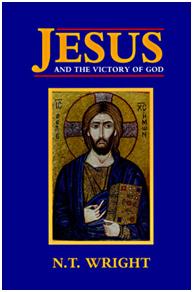Why We Are Being Sent
This morning I announced to our congregation that our family looks to be the next family sent out from Cornerstone Church. We are, after all, a sending community.
Cornerstone Church, based in Americus, Georgia, is a large family with people all over the world. Sending people has become a part of our congregational DNA. People come to our church for a certain season of their lives and then they are sent out to various parts of the country and around the world. We believe we have become the kind of church where people are sharpened, shaped, and then sent out by God design. Our time to be sent is coming soon.
I have accepted a staff position at Word of Life Church in St. Joseph, Missouri, which will begin in June 2011. The Vreeland family will be sent out from Cornerstone Church sometime in May next year.
So why are we being sent?
Let me explain by backing up a bit. Cornerstone Church was founded by faithful people who desired an “Ephesians 4” kind of church—a local church free from denominational constraints, a church free to worship Jesus in the power and presence of the Holy Spirit, a church where leaders equipped the saints for ministry. Cornerstone Church was and is a church that Jesus is building. I have been thankful to serve and grow with this congregation over the last eleven years. This church has been my family and my church home. We have laughed together and cried together. We have worshiped, worked, and played together for over a decade and sadly our time together is coming to an end.
For over eighteen months, I have felt that a time of transition was coming. During this time, I shared with our elders that I was open to exploring ministry opportunities outside of our church if God was opening the door. I did explore a few opportunities at other churches during this time, but they all ended up as closed doors. My prayer has always been for God to send our family and use us wherever he desired for us to live and work and serve.
Our elders have been, and continue to be, completely supportive of me. I thank God for that, because as Cornerstone’s pastor, I have felt completely free—free to go or free to stay. There is absolutely no dissatisfaction in my heard regarding our church. I love our church. Cornerstone is a great church to lead and be apart of. It is a church of leaders, members, and attenders who love God and love one another with authenticity. We would love to gather up everyone in the church building and tie about 10 millions ballons to the roof, like in the movie Up. Then we could float the church on up to St. Joe with everyone at Cornerstone with us.
The primary reason I was open to other ministry opportunities was an ongoing and unshakable sense in my heart that I had fulfilled God’s calling for me in this church. The work of the local church is never done. There is always a new generation of Cornerstonians growing up in the church. There are always new people coming in and new believers who need to be discipled. There are always stagnant Christians who need to be transformed and mature saints who need to be mobilized in ministry. The work of the local church is never done, but it seems my specific calling in this local church has been fulfilled.
It took me a long time to understood why God called me here eleven years ago. For a long time, I thought it was a mistake. Either I misunderstood his calling or God called the wrong person. I didn’t understand why God wanted me to stay in 2004 amid the upheaval in our church after the previous pastor resigned. But God’s providence is easier to see the rearview mirror. Looking back, I can see God’s hand at work in my own heart and in the heart of our congregation. I am humbled, really humbled. There is no sense of false humility here; I am truly humbled that God was able to work through my failures, mistakes, sins, blunders, ignorance, and misguidedness at times to create something beautiful in this congregation.
Reminds me of the chorus from Gungor’s “Beautiful Things”:
You make beautiful things, you make beautiful things out of dust.
You make beautiful things, you make beautiful things out of us.
Our church is far from perfect, but we are becoming beautiful as a congregation. We are church without strife, backbiting, and fighting, where people love one another. We are people who worship God who is Father, Son, and Holy Spirit. We are a congregation formed by the Scripture. We are those who confess Jesus is Lord and live with him at the center of everything. It seems that my calling here was to lead our church into a season of health. When I was ordained in January 2000, the minister speaking at my ordination challenged me to leave churches better than the way I found them when I entered in. I can honestly say Cornerstone is a better church, a healthier church, a more beautiful church, than it was when I arrived in 1999.
And now it is our family’s turn to be sent. Today is not the day for tears and goodbyes. We still have seven months of ministry here, seven months to continue to do what we do, which will now include laying the ground work for the next chapter in Cornerstone’s history.
Bonus: ” Beautiful Things” by Gunor
 Today is the eve of Ash Wednesday (some traditions call it
Today is the eve of Ash Wednesday (some traditions call it 